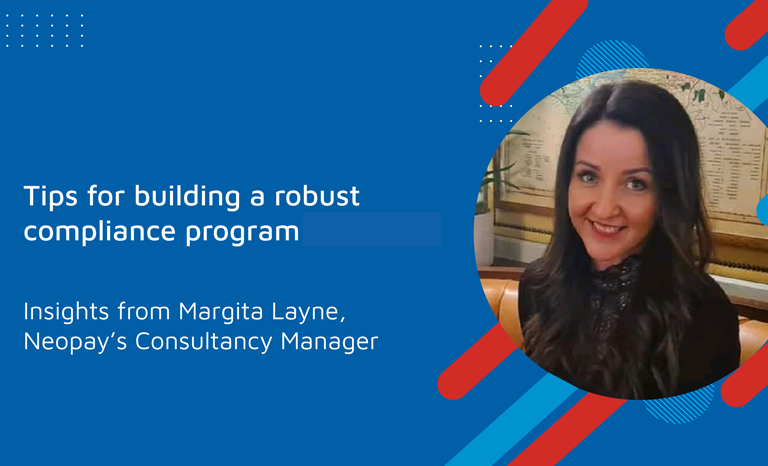As a previous MLRO and Head of Compliance within the payment sector, and now as Neopay’s Consultancy Manager, I have seen first-hand the importance of building a robust compliance program for financial services firms operating in the UK under the supervision of the FCA, or cross border under local supervisory authorities’ regime. Compliance is not just a legal requirement but an essential aspect of any business’s operations. In this update, I share my tips for building an effective, sustainable and robust compliance program.
1. Identify and understand your compliance obligations
Identifying and understanding your compliance obligations is the foundation of any successful compliance program. This involves staying up-to-date with relevant laws and regulations and ensuring your business is in compliance with them. It’s essential to have a clear understanding of your business’s operations, products, and services and how they fit within the regulatory landscape. This includes not only identifying your legal obligations but also ensuring that your compliance program aligns with your business’s values and goals. A comprehensive compliance program must be tailored to your specific industry, business size, and operations to be effective.
2. Develop a culture of compliance
Compliance is not just a set of rules and regulations – it’s a mindset. Foster a culture of compliance within your business by setting the tone from the top. This means that senior management should lead by example and prioritise compliance in all business decisions. It also means communicating the importance of compliance to all employees and encouraging them to speak up if they identify any potential compliance issues. By creating a culture of compliance, you can help ensure that everyone in your organisation understands the importance of compliance and works towards maintaining it.
3. Conduct due diligence on third-party suppliers
Many businesses rely on third-party suppliers to help them operate. While third-party suppliers can be a significant asset to businesses, they can also pose significant compliance risks if they are not carefully vetted. Conducting due diligence on third-party suppliers is critical to ensuring they are following relevant laws and regulations. This includes conducting background checks, reviewing their compliance policies and procedures, and monitoring their ongoing compliance. It’s essential to ensure that your third-party suppliers understand your compliance expectations and that they are also committed to maintaining a strong compliance program.
4. Regularly review and update your compliance program
Compliance requirements are constantly changing, which means your compliance program needs to be regularly reviewed and updated. This includes reviewing your policies and procedures through an internal monitoring / assurance programme or through independent external compliance audits, conducting risk assessments, and making necessary changes to your program based on changes in the regulatory landscape. Regular review and updates of your compliance program ensure that your program remains relevant and effective in mitigating compliance risks.
5. Conduct thorough employee training
Your employees play a critical role in maintaining compliance. Conduct regular training sessions to ensure they are supported and equipped with knowledge to understand the regulatory requirements and the consequences of non-compliance. This will help them identify potential compliance issues and take appropriate actions to mitigate them. Make sure to document the training sessions and keep records of employee certifications to demonstrate your commitment to compliance.
How Neopay can help
At Neopay, we understand the importance of building a robust compliance program for businesses. Through our extensive experience, we have learned that compliance is more than just a legal obligation; it is a critical component of running a successful and trustworthy business. Our wide range of compliance solutions, combined with our expert advice and guidance, help financial services firms meet their compliance obligations. Following these tips can also help your business mitigate compliance risks.
We can help you review and update your compliance program regularly. Our team of experts stays up-to-date with the latest regulatory developments and can provide guidance on any changes that may impact your business. Contact us to find out how we can support your business in navigating the complex world of compliance and build robust compliance programs that protect your business and customers.
By Margita Layne, Neopay Consultancy Manager
About the author
Margita Layne brings over a decade of experience in compliance within financial services to her role at Neopay. Previously serving as Head of Compliance and MLRO at an industry-leading e-money firm, as well as holding various compliance and managerial positions at CFD/FX brokerage institutions and asset management companies. Margita’s extensive experience and Master’s Degree in Finance, Banking and Investments enable her to provide exceptional advice and assistance to clients in meeting their regulatory and compliance needs.



